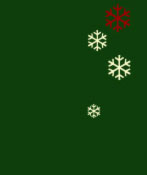|
History
The Boy Scouts of America (BSA) and the Audubon movement both began at the beginning of the twentieth century and
share a common conservation ethic. Bird Study Merit Badge was one of the original BSA merit badges in 1911 and was required
to become a Eagle Scout until 1952, when the more generalized Nature (and later Environmental Science) Merit Badge was substituted.
Frank Chapman himself wrote the bird identification sections for the first Scout Handbooks.
Merit Badges
Merit badges give Scouts the opportunity to explore a hobby or vocation to see if it interests them. They are not
designed to make them proficient in an area. We should not expect Scouts who complete Bird Study merit badge to be proficient
birders, any more than we expect those who complete Engineering merit badge to be able to construct a railroad bridge.
Target Audience
The target audience will mostly be young men and women aged 12 to 15 who may or may not be terribly interested in
birds. In order to give each student attention, a class size of fifteen or less is recommended to start, but can be a bit
larger if there are sufficient instructors.
While every Scout is different, as a rule they like adventure, excitement,
activity and learning things. Their attention span is short, so no topic should be more than twenty minutes. Breaking things
up between mental activities, such as learning bird field marks, and physical activities, such as constructing bird feeders maintains
interest. Remember that this is our opportunity to sell birding as fun!
Merit Badge Requirements
|




